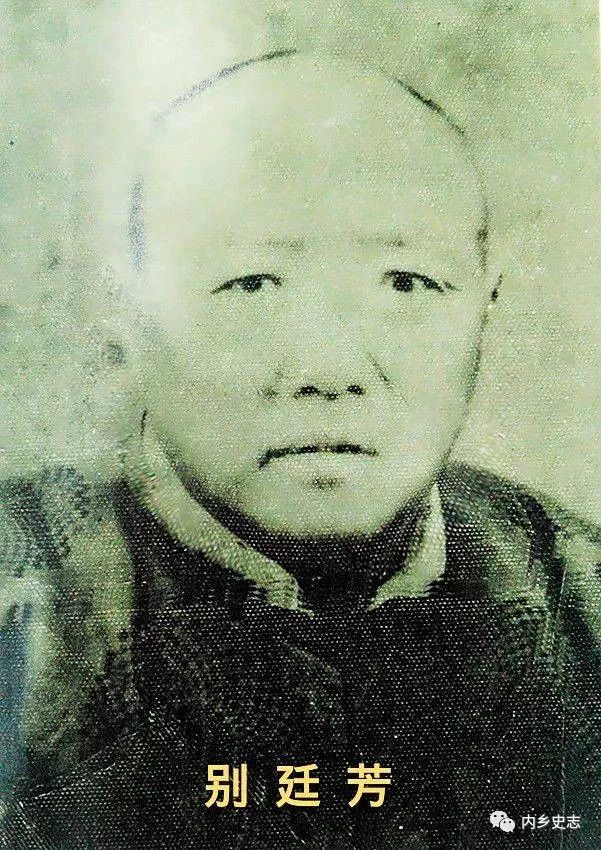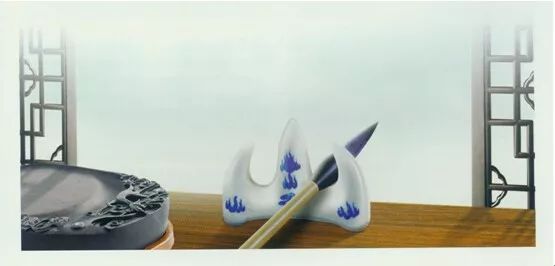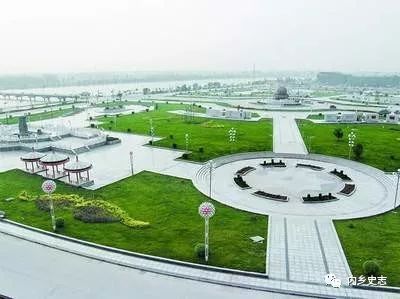

Written by Tang Ruili
On March 14, 1940, Bie Tingfang, the local warlord who had ruled the Wanxi region for decades, was defeated in the internal strife of the Kuomintang faction. This warlord, who had fought for decades, fell ill in shame and anger, realizing that he had reached the end of his life when medical treatment proved ineffective.
“As one approaches death, their words become sincere.” In his final moments, he expressed heartfelt words: “Although the Communists like Peng Xuefeng, Guo Yiqing, and Yuan Baohua are few in number, they are the pillars of my heart. I came to know them too late. From now on, you must take the Communists as your teachers…” This was Bie Tingfang’s last will left for his son Bie Ruijiu and grandson Bie Bingkun.
Bie Tingfang, amidst the complex political struggles of modern China, implemented rural self-governance with remarkable achievements, yet his methods were ruthless and shocking. He transitioned from a butcher of Communists to a supporter of the Communist Party’s united front against Japan, ultimately becoming an enlightened figure who endorsed the Communists.
1. Building Villages and Forming Armed Forces
In early 1911, Bie Tingfang initiated the construction of Laohuzhai, establishing self-defense forces to protect the territory and the people. The villagers unanimously supported Bie Tingfang as the village chief, working together to build Laohuzhai. After its completion, Bie Tingfang expanded his influence by merging mountain strongholds and acquiring more firearms. By 1920, the mountain strongholds in Danshui and Yangcheng formed mutual defense alliances to bravely combat bandits. In 1924, Nanyang’s commander Ma Zhimin combined the local militias of Zhenping, Neixiang, and Xichuan into four regiments, with Zhang Hexuan as the commander of the first regiment and Bie Tingfang as the commander of the second regiment. Bie Tingfang led his troops to eliminate bandits in Miping, Xiping, and Shigang, continuously expanding his power. In December 1926, Bie Tingfang defeated Zhang Hexuan and took control of the Neixiang County militia, becoming the overall commander. In the winter of 1928, after assassinating Neixiang County magistrate Yuan Xu, he openly took control of county governance, appointing officials, issuing currency, recruiting soldiers, and monopolizing military, political, financial, and cultural power in Neixiang County. Bie Tingfang, bold and reckless since childhood, did not hesitate to employ various despicable and cruel methods to establish his own “unified rule over the world.”
2. Implementing Autonomy with Remarkable Achievements
On September 7, 1930, Bie Tingfang responded to Peng Yuting’s initiative by convening leaders of local militias from Ningxigu in Deng County and Chen Zhonghua in Xichuan County in Yangji Town, Neixiang County, to discuss Peng Yuting’s proposal for autonomy. The attendees unanimously supported the proposal and decided to establish the Wanxi Four-County Local Autonomy Committee, with Peng Yuting as the director of the joint defense office. As Bie Tingfang’s influence gradually expanded to the four counties of Wanxi, he utilized his power to implement a series of stringent measures in politics, military, economy, and education, aiming for the autonomy goal of “self-defense to protect autonomy, autonomy to promote self-sufficiency, and self-sufficiency to eradicate poverty and chaos,” thus achieving the ideal of “no theft on the roads, no locked doors at night, no lawsuits in villages, and surplus in every household” under the “three self-principles” of self-defense, self-governance, and self-sufficiency.
Militarily, Bie Tingfang organized all able-bodied men aged 18 to 35 in the county into nine regiments and twelve standing battalions, totaling over 20,000 men armed with guns. The standing battalions were professional soldiers, while the reserve battalions kept their weapons and farmed during the busy season, training during the off-season, ready to fight when called. He established a gun factory, producing over 120,000 rifles, 10,000 light and heavy machine guns, and over 300 artillery pieces over more than a decade, with ample ammunition and grenades stored. By 1938, Bie Tingfang commanded an army of 100,000 men. He also vigorously constructed roads and established telephone lines, ensuring smooth communication across counties, districts, towns, and villages.
Politically, Bie Tingfang implemented a system of local governance, dividing Neixiang County into nine districts, 72 local militias, and 320 neighborhood watches. Every ten households formed a militia unit, with a leader appointed. Ten militia units formed a neighborhood watch, with a director appointed. Ten neighborhood watches formed a local militia, with a district chief appointed. The leaders of these units were held accountable for each other’s actions, meaning that if one person committed a crime, their entire family would be punished. This system ensured that the people adhered to the law and the officials fulfilled their duties. When encountering bandits, the people would unite to assist each other. A “five certificate” system was implemented to prevent outsiders from entering and causing harm. The five certificates included exit permits, migration permits, beggar permits, vendor permits, and transit permits, serving as supplementary measures to the militia system. Anyone without a certificate, especially outsiders, was prohibited from entering the area.
In education, Bie Tingfang believed that “legislation is more valuable than trust, and law enforcement relies on gaining the people’s support. Without the people’s support, even the wisest cannot govern effectively.” Therefore, he established numerous schools to cultivate talent. By 1938, Neixiang County had founded 235 primary schools and a normal school in Tianming Temple for rural teachers. He also specified the curriculum to focus solely on local autonomy theory and knowledge such as tree planting, farming, road construction, and electricity generation. He compiled a “People’s Textbook” and enforced measures for adult literacy education.
Economically, he promoted industry, agriculture, afforestation, and water conservancy projects. Starting in 1929, Bie Tingfang invited individuals with scientific knowledge and experience in tree planting, such as Chen Fengtong and He Ti, to plan and lead industrial initiatives in Neixiang County. Every winter, he mobilized tens of thousands of laborers to dredge rivers, dig canals, build embankments, and plant trees. After years of effort, over 670 acres of rice fields were opened along the banks of the Tuan River, Mo River, Ding River, and Laoguan River, with 80 million trees planted and 145 embankments constructed, irrigating over 5,000 acres of land.
Bie Tingfang also vigorously promoted industrial development, establishing hydroelectric stations, light bulb factories, silk factories, glass factories, paper mills, breweries, agricultural tool factories, and manufacturing sites. He issued five major orders to prohibit opium smoking, cigarette smoking, the use of foreign indigo, foreign goods, and gambling, aiming to protect local industries and rectify social customs.
To ensure financial stability, Bie Tingfang implemented three major measures: first, issuing “Neixiang County Financial Circulation Coupons (paper currency)” within the county to establish an independent financial system. This currency later circulated throughout the Nanyang region and into Xuchang. Second, he measured land, cleared agricultural taxes, and established a “grain stone ledger.” Third, he organized property taxes and determined a commercial tax system.
Regarding harsh governance, Bie Tingfang enforced laws without favoritism, which was a crucial force behind the successful implementation of various autonomy measures. He believed in the political principle of “harsh laws for chaotic times.” Those who violated his orders faced severe punishments, from flogging to execution. Both commoners and officials were treated equally under his laws, and all lawbreakers faced sanctions. When Bie Tingfang’s son-in-law violated the law against “stealing melons is punishable by death,” his only daughter cried and begged for her husband’s life. Bie Tingfang pushed her away, saying, “Execute him; I will support you for life.” Ultimately, he had his son-in-law executed. When his son hoarded opium, violating the law against “opium and cigarettes,” he ordered his son to burn all the opium he had hoarded. His son argued, “The government allows open trade; you can’t prohibit it within the county, and I should be allowed to transport it out of the county.” Bie Tingfang firmly replied, “The government permits it, but our family does not!” His son dared not argue further and complied, publicly burning all the opium. High-ranking officials like Hu Gongcen, Zhang Meigao, and Qin Bichen were also executed for violating Bie Tingfang’s laws.
3. The Massacre of Communists: A Legacy of Atrocities
To consolidate his position as a local warlord, Bie Tingfang did not hesitate to kill Communists. In September 1929, he executed ten Communist Party members, including Jia Dianyi and Liu Minghuang. In January 1931, he executed the first secretary of the Neixiang County Communist Party, Ma Huamin. In 1932 and 1934, Bie Tingfang twice led troops to assist the Kuomintang army in blocking the Red Fourth Army, Red Third Army, and Red Twenty-Fifth Army, killing over a hundred Red Army soldiers. In June 1937, he killed Communist Party members Wu Huaisan and Zhang Guoxi, further accumulating blood debts to the people.
4. United Front Against Japan: Achievements in Xintang
After the outbreak of the Anti-Japanese War, Bie Tingfang served as the commander of the joint defense of thirteen counties in Wan, commanding an army of 100,000, with his influence extending to Yexian, Xiangyang, Qinyang in the east, and Shangluo in the west, reaching Junxian and Guanghua in Hubei Province to the south, and Songxian and Lushi to the north, becoming a significant local militia force in the border area of Hubei, Henan, and Shaanxi. Both the local Communist Party organization in Nanyang and Kuomintang leader Chiang Kai-shek paid great attention to Bie Tingfang’s armed forces. In the summer of 1938, Chiang Kai-shek summoned Bie Tingfang to Wuhan, commending Neixiang County as the third model county in the nation and appointing Bie Tingfang as the commander of the Anti-Japanese Self-Defense Army in the sixth district of Henan Province, secretly instructing him on anti-Communist strategies. After extensive persuasion from Guo Yiqing, Yuan Baohua, and other leaders of the Communist Party in southwestern Henan, Bie Tingfang recognized the true nature of Chiang Kai-shek as a tyrant and suddenly awakened, openly stating, “Chiang Kai-shek is outwardly generous but inwardly jealous; I will eventually confront him.” Thus, Bie Tingfang ceased his anti-Communist activities.
In June 1938, Bie Tingfang expressed to Liu Guanyi, deputy director of the United Front Work Committee of the Henan Provincial Committee of the Communist Party, his willingness to cooperate with the Communists against Japan, promising never to oppose the Communists again. Subsequently, he stationed a regiment of troops near the New Fourth Army’s Eighth Brigade in Zhugou, Quxian County, to jointly prepare for the defense against invading Japanese forces. In May 1939, during the first Xintang battle, Bie Tingfang personally led over 7,000 elite militia troops to bravely fight alongside the Kuomintang army, inflicting heavy casualties on the Japanese, with over 3,000 killed or wounded. The Central Military Commission of the Kuomintang awarded him the “First Class Medal of the Army, Navy, and Air Force.” Kuomintang elder Yu Youren also commented that Bie Tingfang had “achievements in Xintang.”
In early February 1940, the Central Government of the Kuomintang inexplicably dismissed Bie Tingfang from his position as commander of the Anti-Japanese Self-Defense Army in Henan Province. After being awarded the Kuomintang’s military medal, Bie Tingfang was suddenly demoted to a civilian position, which made him fully aware of Chiang Kai-shek’s true nature of excluding and eliminating dissenters. He realized that the Communists, represented by Yuan Baohua and Guo Yiqing, were his true allies in the fight against the enemy and to save the nation. Therefore, during his illness, he met with Yuan Baohua and specifically instructed on strategies following the disbandment of the Anti-Japanese Self-Defense Army: “… I know my time in this world is limited, so regarding the disbandment of the Anti-Japanese Self-Defense Army, I ask you to consider the following strategy: withdraw from the county, hold the district. The name can change, but the military power must not be relinquished. Stay calm for now and wait for the right moment to rise again and resist the enemy against the Japanese.” Bie Tingfang’s son, Bie Ruijiu, followed his father’s last wishes and made efforts to protect Communist Party members like Li Wenfang.
Many of Bie Tingfang’s descendants participated in the revolution. His son, Bie Ruijiu, chose not to resist and left the army to live in Xi’an, where he died in 1950; his eldest grandson, Bie Bingling, worked at Tsinghua University and now lives in retirement in Wuchang; his second grandson, Bie Bingkun, followed Bie Tingfang’s last wishes and joined the revolutionary forces in 1944, working in the social department of the North China Bureau after the liberation.
Lenin said: “When analyzing any social issue, the absolute requirement of Marxist theory is to place the issue within a certain historical context.” “To discuss this issue without considering the specific historical environment is to fail to understand the basic requirements of dialectical materialism.” Evaluating complex and powerful historical figures has always been a challenging task. Yue Fei suppressed peasant uprisings, and national heroes like Feng Yuxiang, Ji Hongchang, and Cai Tingkai have all fought against the Communists in history, while Lin Biao and Wang Jingwei were once revolutionaries in their early lives. In China, the one who has killed the most Communists is undoubtedly Chiang Kai-shek, yet Mao Zedong, after the establishment of the People’s Republic of China, also paid great attention to protecting Chiang Kai-shek’s ancestral tomb and the flora and fauna of his hometown, even sending Zhang Shizhao to inform him that “the tomb in Fenghua remains intact, and the flowers and grass in Xikou are unharmed.” During the Cultural Revolution, the Red Guards damaged the Chiang family tomb, and the central government quickly repaired it upon learning of the situation. The published works on the Anti-Japanese War and evaluations of the Kuomintang and Chiang Kai-shek can now treat Chiang Kai-shek more objectively and fairly, as he did have some contributions during the Anti-Japanese War and maintained a consistent stance on “one China” until his death, without betraying or dividing the country. In contrast, Bie Tingfang also did not lack contributions to the people; the “Wanxi Autonomy” he established created a “small climate” that cannot be denied. As long as one can apply the methodology of Marxist historical materialism and dialectical materialism to study Bie Tingfang realistically, rather than viewing him through the “extreme left” lens of the past, I believe that Bie Tingfang should also be evaluated “in two parts” rather than being completely denied or dismissed. The correct approach should be to distinguish between merits and demerits, maintaining objectivity and fairness.
Many common people still remember Bie Tingfang fondly, not only for his governance of Neixiang during the war years, which brought relative peace and significant achievements in river management and land reclamation, but also for his simple lifestyle: his daily meals consisted of steamed buns and corn gruel for breakfast; pickled vegetable noodles and a plate of garlic water for lunch; and a slightly more elaborate dinner with a plate of scrambled eggs and a small cup of local white liquor. He “improved his life” by enjoying pancakes, making only three to five at a time, and no one in the family could eat them except for his two little grandsons, Bie Bingling and Bie Bingkun, to whom he would give half a pancake each. Once, when the two grandsons bought books like “Water Margin” and “Romance of the Three Kingdoms” for four or five yuan, Bie Tingfang scolded them for wasting money and hit his beloved grandson. According to his grandson Bie Bingkun’s recollection, “This was the only time we were punished by him.” Bie Tingfang not only participated in labor such as transplanting rice and planting trees but also personally improved rice seeds, researching how to repair terraced fields from the bottom up to save labor and prevent soil erosion. This left many elderly people in awe even to this day.
From the brutal killing of Communists to his dying wish for his descendants to “take the Communists as teachers,” Bie Tingfang’s life was not only complex and changeable but also left many confusions, lessons, and reflections.
(Written by:Deputy Minister of the United Front Work Department of Neixiang County Tang Ruili)

—END—

Previous Highlights
·【Historical Research】 The Emergence and Demise of Banditry in Wanxi
·【Historical Research】 Zhang Guanzhi: The Murderer of Liu Hulan Was Not from Neixiang
·【Historical Research】 The Nine Wives of Liu Gu San: A Verification
·【Historical Research】 My Encounter with Bie Tingfang
·【Historical Research】 The Sign of Wanxi Autonomy Reaching Its Peak — The Henan Provincial Government and the Relocation of Schools in Occupied Areas to Wanxi
·【Historical Research】 My Interaction with Chen Fengtong

Long press the QR code to followNeixiang Historical Records
Planning: Yao Wenshu
Guidance: Xu Shengyi
Editing: Sun Ruizhen
